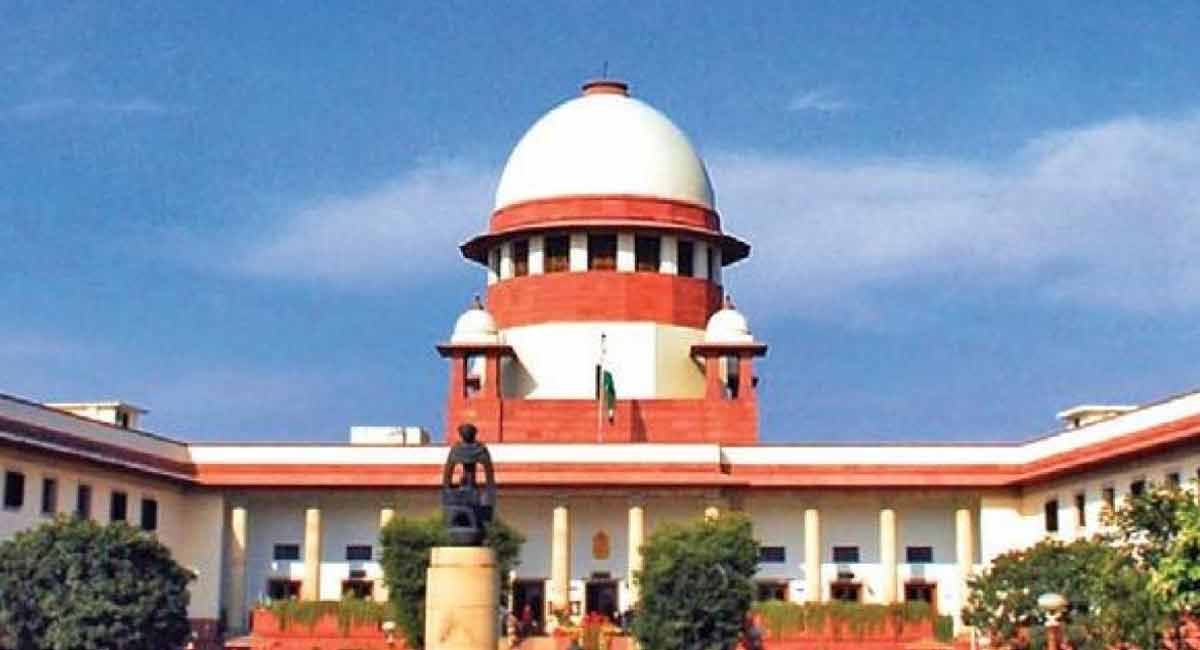The Supreme Court of India has taken a significant step by referring a crucial question regarding the limitation period for applications under Order XXI, Rule 95 of the Code of Civil Procedure (CPC), to a larger bench. The move comes as doubts have emerged about the precedent set by a previous ruling concerning the initiation of the limitation period. This decision could have far-reaching implications for litigants and legal practitioners who deal with execution proceedings.

Supreme Court Refers the Question of Limitation for Application under Order XXI, Rule 95 CPC to Larger Bench
The case in question revolves around the interpretation of the initiation of the limitation period for applications filed under Order XXI, Rule 95 CPC. The rule pertains to the filing of objections to the execution of a decree, allowing judgment debtors to challenge the sale of their property. A pertinent question that has come to the fore is whether the limitation period for such applications starts from the date of the confirmation of the sale or the date of the sale itself.
Referral to a Larger Bench
The Supreme Court has chosen to refer this crucial question to a larger bench, indicating the complexity and significance of the matter. The doubt surrounding the precedent set by a previous ruling has led the court to seek a comprehensive reconsideration of the issue. The decision of the larger bench will be eagerly anticipated as it is likely to clarify the initiation of the limitation period for applications under Order XXI, Rule 95 CPC.
Implications for Litigants and Legal Practitioners
The uncertainty regarding the commencement of the limitation period has significant implications for both judgment debtors and decree holders. Clear guidelines on this matter are essential as they directly impact the rights of litigants involved in execution proceedings. Legal practitioners often advise their clients based on established precedents, and a definitive ruling from the larger bench will provide much-needed clarity in this area of law.
Importance of Clarity in Limitation Periods
Limitation periods are a fundamental aspect of legal proceedings as they prescribe the time within which a legal action must be initiated. The clarity in determining when the limitation period begins to run is essential to avoid confusion and ensure justice is delivered in a timely manner. Ambiguities can lead to unnecessary disputes and prolonged litigation, causing inconvenience and hardship to the parties involved.
Precedents and the Evolution of Law
Precedents play a vital role in the Indian legal system. They provide a basis for consistent decision-making and contribute to the stability of the legal landscape. However, as legal interpretations evolve, situations may arise where a reevaluation of established precedents becomes necessary. The Supreme Court’s decision to refer the matter to a larger bench reflects its commitment to ensuring that the law remains relevant and effective in addressing contemporary legal challenges.
Conclusion
The Supreme Court’s decision to refer the question of the limitation period for applications under Order XXI, Rule 95 CPC, to a larger bench underscores the court’s dedication to maintaining clarity and consistency in legal matters. The doubt surrounding the initiation of the limitation period has prompted this significant step, which is expected to provide much-needed clarity to litigants, legal practitioners, and the judiciary alike. As the legal community awaits the decision of the larger bench, this case stands as a reminder of the dynamic nature of the legal system and its continuous efforts to adapt to evolving legal complexities.











